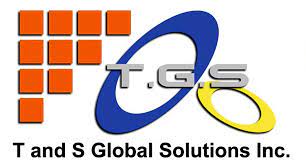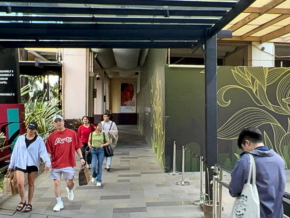A Guide to the Universal Access to Tertiary Education Act of 2017
It’s been two weeks since President Rodrigo Duterte signed Republic Act (R.A.) No. 10931, or the Universal Access to Tertiary Education Act of 2017. Talks have all but subsided, yet people are still unsure as to what it is, who can (and consequently cannot) avail of it, and arguably the most important point of all: when it starts.
Also read: Free Tuition Bill in PH Signed Into Law
We’re not legal experts so you can still consult your lawyer friend if you want, but if you don’t have time to do so, here’s our guide to R.A. 10931:
What is it?
 R.A. 10931. R.A. 10931 provides students currently and future students of SUCs, LCUs, and state-run TVIs free tuition and school fees./IMAGE Official Gazette
R.A. 10931. R.A. 10931 provides students currently and future students of SUCs, LCUs, and state-run TVIs free tuition and school fees./IMAGE Official Gazette
In simple terms, R.A. 10931 gives anyone enrolled in a state university or college (SUC), CHED-recognized local college or university (LCU), or a state-run technical-vocational institution (TVI) a pass when it comes to paying their tuition and other school fees under Sections 4 and 5 of R.A. 10931. For the record, there are 112 SUCs in the country, according to a 2016 report by CHED, so let’s leave it at that.
The tuition fee is straightforward, so we’ll leave it at that. The phrase “other school fees”, on the other hand, are as follows (taken from Paragraph H, Sec. 3):
- library fees
- computer fees
- laboratory fees
- school ID fees
- athletic fees
- admission fees
- development fees
- guidance fees
- handbook fees
- entrance fees
- registration fees
- medical and dental fees
- cultural fees
- other similar or related fees
This means one thing: come the first term of 2018-2019, if you’re enrolled in an SUC, LCU, or TVI, all you need to pay for is your food, transportation, and lodging (if applicable). Books and other requirements set by your instructors will not be covered, but there are ways around that, which we will leave for another day.
Also read: Full Implementation of Free Tuition Law in June 2018
The main agency in charge of implementing R.A. 10931 is the Unified Student Financial Assistance for Tertiary Education or UniFAST Board, which falls under the eyes of the Commission on Higher Education.
Who can (and cannot) avail?
 PUP STA. MESA MAIN BUILDING. The Polytechnic University of the Philippines (PUP) is one of the 112 SUCs that will benefit from R.A. 10931./IMAGE Wikipedia
PUP STA. MESA MAIN BUILDING. The Polytechnic University of the Philippines (PUP) is one of the 112 SUCs that will benefit from R.A. 10931./IMAGE Wikipedia
Obviously, you can’t just walk to an SUC/LCU/TVI and demand they let you take your degree or tech-voc course. There are requirements which should be met, first of which is you have to be a Filipino student.
For SUCs and LCUs:
– Pass the entrance exam and complete the requirements for admission
– Comply with retention policies set by the university or college
– Not have an existing bachelor’s degree or comparable undergraduate degree
– Finish your degree either on time or a year after you’re supposed to graduate
For state-run TVIs:
– Should not have a bachelor’s degree
– Should not have completed a tech-voc course equivalent to at least a National Certificate III (NCIII) or above
– Should not have failed in any course during your time at the TVI
If you don’t meet these requirements, you’ll be asked to pay for tuition and other school fees. Simple as that.
What if I’m enrolled in a private school or don’t have access to an SUC/LCU/state-run TVI?
Apart from the Student Loan Program for Tertiary Education in Sec. 8, Sec. 7 of R.A. 10931 also gives any Filipino student access to a Tertiary Education Subsidy (TES).
As the name implies, it’s a government subsidy that covers your tuition and other school fees in private schools or TVIs operated by your local government. This subsidy is equivalent to the tuition and other school fees of the nearest SUC or state-run TVI in your area.
It also gives you access to an allowance for books, supplies, transportation, and other personal and education-related expenses, which happens to include a “reasonable allowance for the documented rental or purchase of a personal computer or laptop.” A separate allowance will be given for board and lodging.
However, not everyone can avail of the TES. If your town or city has an existing SUC or CHED-accredited LCU campus, then you can’t avail of TES. There’s also the matter of a priority list, ranked as follows:
- Students who are part of the households under the Department of Social Welfare and Development’s (DSWD) Listahan 2.0, ranked according to your per capita household income
- Students not part of Listahan 2.0, still ranked according to your per capita household income
Both the TES and student loans will be determined and monitored by the UniFAST Board.
Written by Andronico Del Rosario
Sources: Official Gazette, CHED













